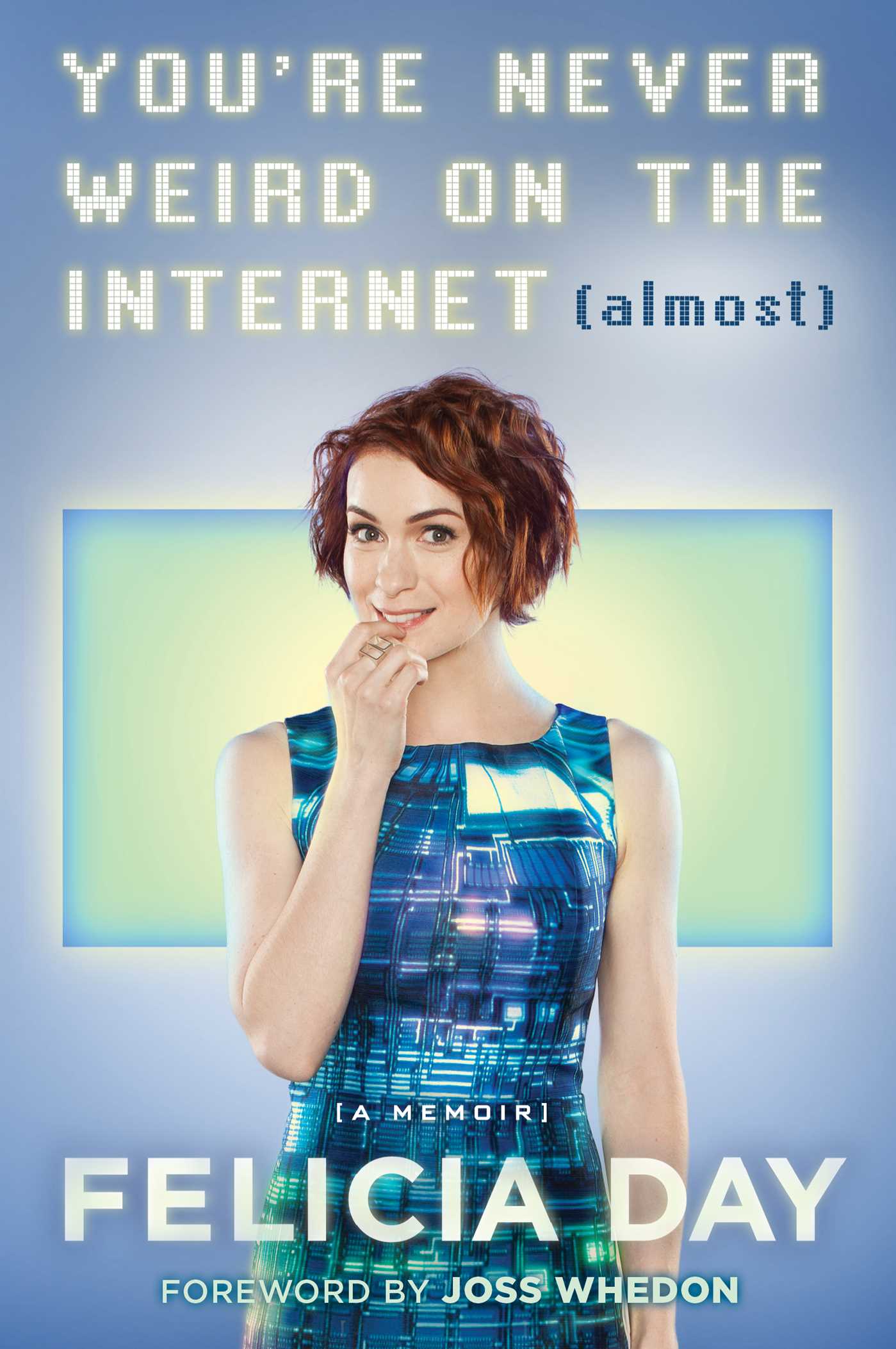
Felicia Day may not be a household name, but she’s an icon among the crowds that flock to Comic-Con. The 36-year-old flame-haired actress is known for roles on shows like Supernatural and Buffy the Vampire Slayer, and also appeared in Joss Whedon’s award-winning Internet musical, Dr. Horrible’s Sing-Along Blog. As the creator and star of The Guild, a fan-favorite web series about gamer life, Day used her success to launch YouTube channel and production company “Geek & Sundry” in 2012. Recently, she took a break from playing video games (like Sunless Sea, her current favorite) and tweeting to her nearly 2.5 million followers to talk to Time.com about her new memoir You’re Never Weird on the Internet (Almost), out this week.
TIME: What’s in the book that you haven’t discussed much online? Did writing help you realize anything new about yourself?
Day: There’s lots of stuff in the book I’ve never shared about my childhood and my problems with depression and anxiety because, really, 140 characters isn’t enough to tell the whole story of those kinds of things. Writing helped tremendously. That’s why when anyone asks me how to start creating I say start journaling. Make yourself talk about your feelings and your past everyday.
I was homeschooled, didn’t have a lot of contact with other people, and that isolation definitely encouraged me to follow things that peer pressure would have dissuaded me from, like math and video games. I was allowed to enjoy what I enjoy without preconceived notions steering me towards something more “normal.” That’s why the message of the book is to embrace your weirdness. It will allow you to stand out, ultimately.
Do you think it’s harder or easier to go viral now and make a living out of it?
I think the probability of making a living is higher, but I do think it’s a saturated market, and creativity is a little cheaper now. You can make a funny video of your kitten, or you can trip and fall in a funny way and get millions of views, but can it make an impact beyond that 30 seconds? Everyone says, ‘Go make a viral video,’ but that’s the worst advice ever. Viral videos have an emotional impulse that’s very hard to duplicate.
Old media struggles with this, too. The online world is motivated by authenticity and personality, and you can’t, as a company or viral news outlet, co-opt that because once people smell that inauthenticity, then they’re going to go somewhere else.
Do you have any new feelings about #GamerGate since it peaked last fall? [After commenting on the controversy Day was “doxxed,” and personal information was published online alongside abusive content] Do you think anything has changed since then?
I don’t like to put so much focus on it. That’s just an example of things that have happened before. It just got strength and name. Actually, the draft of my book was finished before that incident, and there was a chapter I morphed to include that [doxxing issue] only because it reflected what I had already been saying about incidents I’ve had in the past with negative comments.
No matter who you are, if someone wants to get your personal information, they will, and women much more often are the targets of this kind of exposure, assault really. It’s incumbent on the platforms to realize they are not a public space, they’re a private space, and if you want to make people feel safe in your establishment, then you’re responsible for taking the reins and creating a positive dialogue. Otherwise you’ll allow things to fester, kind of like what’s happening on Reddit right now where you have a revolt against people when they’re trying to be a business and make people feel welcome. It’s about the platform evolving. The Internet started out of a sense of anarchy, complete freedom and anonymity, and I think all of those things are positive. Being anonymous allows people to express themselves more freely, but the sad part is a few bad players could deprive people of those benefits.
If that were my business, I would not want to provide a forum for people to talk about certain things, which is the right of a business. They [Reddit] have had incidents like this in the past. The sense of autonomy and not paying people to moderate starts to bite back at you.
Anyone you’ve always wanted to act with or interview?
If I could be in any scene with Simon Pegg, then I’d keel over and die. Or something on camera with George R.R. Martin, who blurbed my book.
Do we need ginger emojis?
Oh, yeah, hello. I love that emojis are being more inclusive, but c’mon. I don’t want to be a blonde girl.
This interview has been lightly edited for length.
More Must-Reads from TIME
- Inside Elon Musk’s War on Washington
- Meet the 2025 Women of the Year
- The Harsh Truth About Disability Inclusion
- Why Do More Young Adults Have Cancer?
- Colman Domingo Leads With Radical Love
- How to Get Better at Doing Things Alone
- Cecily Strong on Goober the Clown
- Column: The Rise of America’s Broligarchy
Write to Olivia B. Waxman at olivia.waxman@time.com